BMW X1 vs Toyota RAV4 - Differences and prices compared
Compare performance (326 HP vs 306 HP), boot space and price (38200 £ vs 35100 £ ) at a glance. Find out which car is the better choice for you – BMW X1 or Toyota RAV4?
Costs and Efficiency:
When it comes to price and running costs, the biggest differences usually appear. This is often where you see which car fits your budget better in the long run.
Toyota RAV4 has a hardly perceptible advantage in terms of price – it starts at 35100 £ , while the BMW X1 costs 38200 £ . That’s a price difference of around 3094 £.
Fuel consumption also shows a difference: Toyota RAV4 manages with 1 L and is therefore convincingly more efficient than the BMW X1 with 2.50 L. The difference is about 1.50 L per 100 km.
As for electric range, the BMW X1 performs minimal better – achieving up to 81 km, about 6 km more than the Toyota RAV4.
Engine and Performance:
Power, torque and acceleration are the classic benchmarks for car enthusiasts – and here, some clear differences start to show.
When it comes to engine power, the BMW X1 has a minimal edge – offering 326 HP compared to 306 HP. That’s roughly 20 HP more horsepower.
In acceleration from 0 to 100 km/h, the BMW X1 is slightly quicker – completing the sprint in 5.40 s, while the Toyota RAV4 takes 6 s. That’s about 0.60 s faster.
In terms of top speed, the BMW X1 performs clearly perceptible better – reaching 233 km/h, while the Toyota RAV4 tops out at 180 km/h. The difference is around 53 km/h.
Space and Everyday Use:
Cabin size, boot volume and payload all play a role in everyday practicality. Here, comfort and flexibility make the difference.
Both vehicles offer seating for 5 people.
In curb weight, BMW X1 is a bit lighter – 1575 kg compared to 1745 kg. The difference is around 170 kg.
In terms of boot space, the Toyota RAV4 offers minimal more room – 580 L compared to 540 L. That’s a difference of about 40 L.
In maximum load capacity, the Toyota RAV4 performs minimal better – up to 1690 L, which is about 145 L more than the BMW X1.
When it comes to payload, Toyota RAV4 to a small extent takes the win – 600 kg compared to 500 kg. That’s a difference of about 100 kg.
Who comes out on top?
Overall, the Toyota RAV4 shows itself to be dominates this comparison and secures the title of DriveDuel Champion.
It convinces with the more balanced overall package and proves to be the more versatile choice for everyday use.
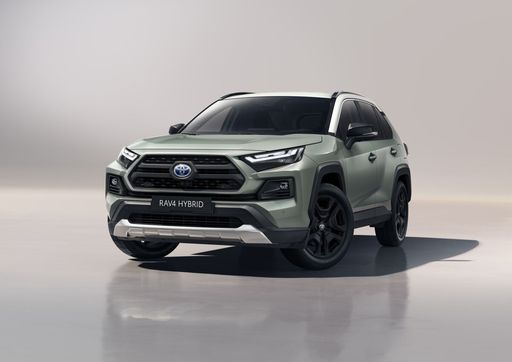
Toyota RAV4
Costs and Consumption
View detailed analysis
Engine and Performance
View detailed analysis
Dimensions and Body
View detailed analysis
BMW X1
The BMW X1 brings a premium feel to compact crossover life, wrapping practical space and agile handling into a tidy, upscale package. It’s ideal for buyers who want BMW driving dynamics without the bulk, offering everyday comfort and a few clever tricks to keep the commute interesting.
details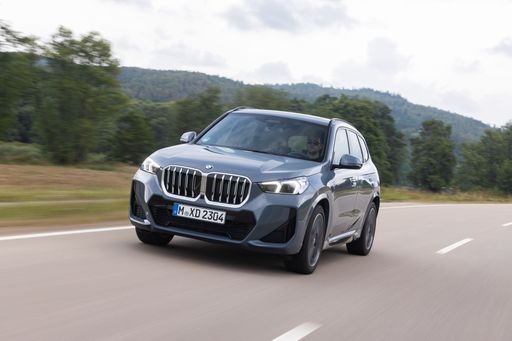
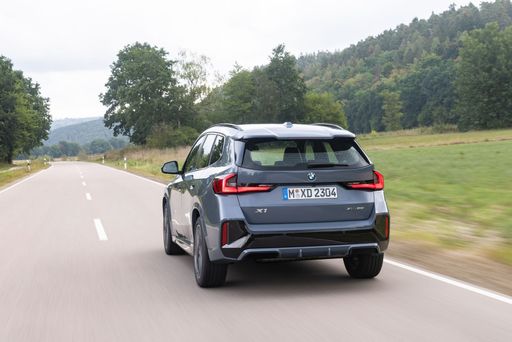
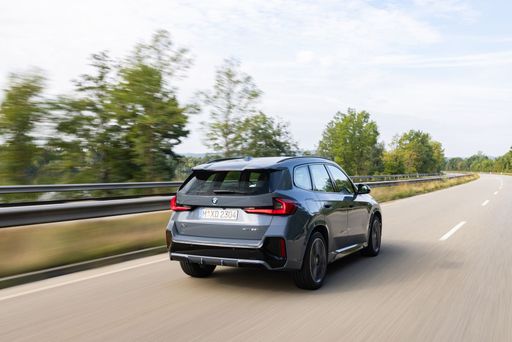
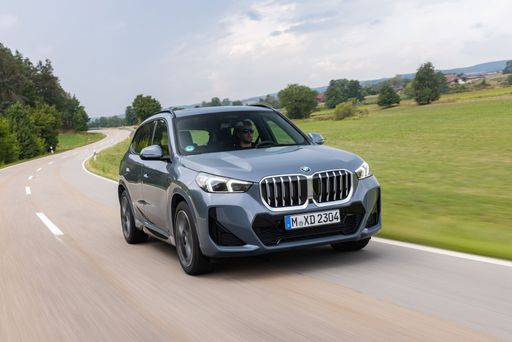
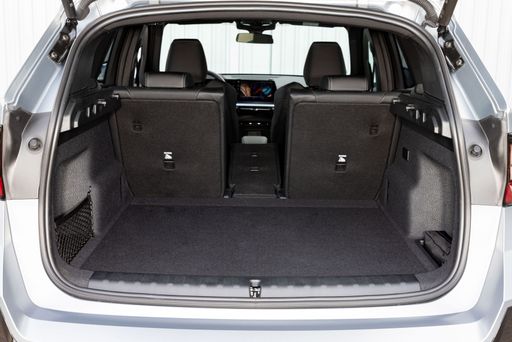
Toyota RAV4
The Toyota RAV4 feels like a sensible friend on the road, marrying dependable practicality with a dash of SUV personality that keeps daily driving from turning dull. Comfortable and easy to live with, it looks tough without shouting and quietly gets the job done — a sensible pick for buyers who want versatility without drama.
details
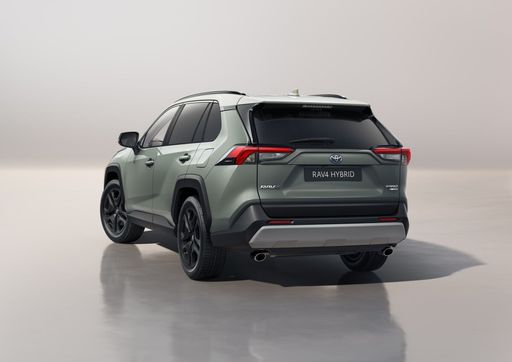
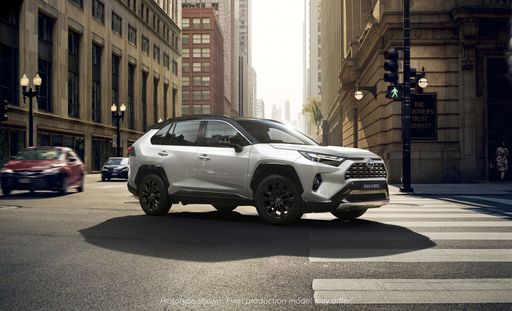
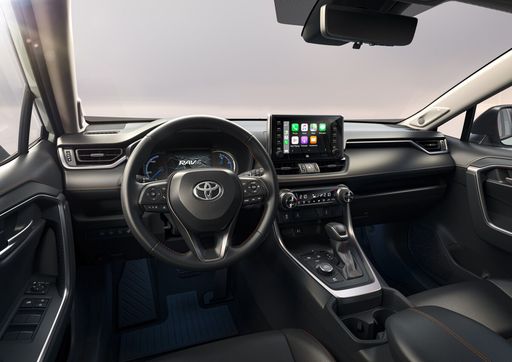
Costs and Consumption |
|
|---|---|
|
Price
38200 - 55500 £
|
Price
35100 - 55700 £
|
|
Consumption L/100km
2.5 - 7.7 L
|
Consumption L/100km
1 - 5.6 L
|
|
Consumption kWh/100km
-
|
Consumption kWh/100km
-
|
|
Electric Range
81 km
|
Electric Range
75 km
|
|
Battery Capacity
14.20 kWh
|
Battery Capacity
-
|
|
co2
57 - 175 g/km
|
co2
22 - 128 g/km
|
|
Fuel tank capacity
47 - 54 L
|
Fuel tank capacity
55 L
|
Dimensions and Body |
|
|---|---|
|
Body Type
SUV
|
Body Type
SUV
|
|
Seats
5
|
Seats
5
|
|
Doors
5
|
Doors
5
|
|
Curb weight
1575 - 1935 kg
|
Curb weight
1745 - 1910 kg
|
|
Trunk capacity
490 - 540 L
|
Trunk capacity
520 - 580 L
|
|
Length
4500 mm
|
Length
4600 mm
|
|
Width
1845 mm
|
Width
1855 mm
|
|
Height
1630 - 1642 mm
|
Height
1685 mm
|
|
Max trunk capacity
1495 - 1545 L
|
Max trunk capacity
1604 - 1690 L
|
|
Payload
490 - 500 kg
|
Payload
390 - 600 kg
|
Engine and Performance |
|
|---|---|
|
Engine Type
Diesel MHEV, Petrol MHEV, Petrol, Diesel, Plugin Hybrid
|
Engine Type
Full Hybrid, Plugin Hybrid
|
|
Transmission
Automatic
|
Transmission
Automatic
|
|
Transmission Detail
Dual-Clutch Automatic
|
Transmission Detail
CVT
|
|
Drive Type
Front-Wheel Drive, All-Wheel Drive
|
Drive Type
Front-Wheel Drive, All-Wheel Drive
|
|
Power HP
136 - 326 HP
|
Power HP
218 - 306 HP
|
|
Acceleration 0-100km/h
5.4 - 9.2 s
|
Acceleration 0-100km/h
6 - 8.4 s
|
|
Max Speed
190 - 233 km/h
|
Max Speed
180 km/h
|
|
Torque
230 - 477 Nm
|
Torque
-
|
|
Number of Cylinders
3 - 4
|
Number of Cylinders
4
|
|
Power kW
100 - 240 kW
|
Power kW
160 - 225 kW
|
|
Engine capacity
1499 - 1998 cm3
|
Engine capacity
2487 cm3
|
General |
|
|---|---|
|
Model Year
2024 - 2025
|
Model Year
2024 - 2025
|
|
CO2 Efficiency Class
D, E, F, B
|
CO2 Efficiency Class
D, B
|
|
Brand
BMW
|
Brand
Toyota
|
Is the BMW X1 offered with different drivetrains?
The BMW X1 is offered with Front-Wheel Drive or All-Wheel Drive.




